Honeydew melon (also called honey melon) is a nutritious fruit with folate, magnesium, and vitamins B6, C, and K. But can bearded dragons eat honeydew melon?
The answer is YES, but it is important that you monitor how much honeydew melon you will give to them as too much of it can cause health issues.
You should be careful when feeding them any fruits. Know its nutrition data, and then find out if the fruit contains anything that may be good for humans but not for reptiles.
Related Posts:
- How to Tell If Your Bearded Dragon Is Happy?
- Why Does My Bearded Dragon Stare at Me?
- 20+ Tips to Setup Beardie Tank
- Why Is My Bearded Dragon Breathing Heavy?
- Can Bearded Dragons Get High?
- 30+ Beardie Body Language: How to Figure Out?
What Are the Benefits of Honeydew Melon for Bearded Dragons?
Honeydew melons are big and oval melons with a pale center and a smooth rind. They are not loaded with sugar, but they are high in fiber, micronutrients, vitamin C, and potassium.
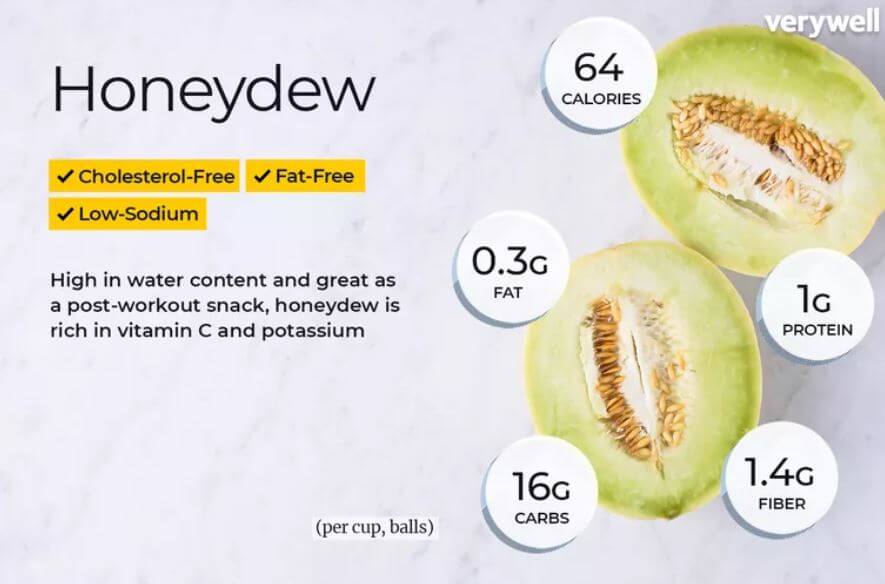
Honeydew melon contains potassium, vitamin C, vitamin A, folate, magnesium, and chlorine, which are all good for a beardie’s health.
Bearded dragons may find the fruit tasty, which can encourage them to eat and maintain a healthy appetite.
The table below will show you the breakdown of what bearded dragons can get from this fruit.
| Name | Amount | Unit |
| Water | 89.82 | g |
| Energy | 36 | Kcal |
| Sugars | 8.12 | g |
| Calcium | 6 | mg |
| Phosphorus | 11 | mg |
Let us talk about the contents of honeydew melon in more detail.
1. Water
The water content in this fruit is very high. It is too much for a beardie because it can lead to some problems, such as diarrhea or other digestive issues.
So, while bearded dragons can eat honeydew melon, it shouldn’t be a part of their staple diet.
2. Energy
Honeydew melon provides the right amount of calories, which is an energy source. If you want your beardie to stay active, you can give them this fruit.
The calories in this fruit are not very high, but it will be helpful.
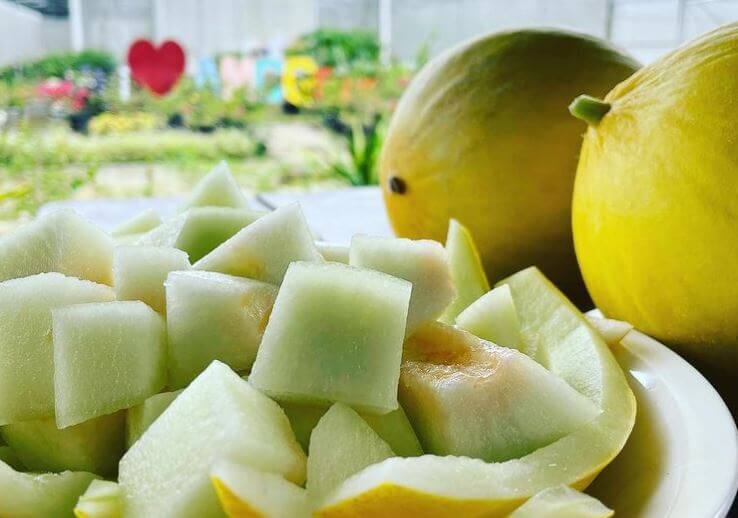
3. Sugars
The amount of sugar in honeydew melon is not high, but it doesn’t mean they can eat too much of this.
Sugar can be harmful to reptiles if consumed in high amounts, so this fruit should be given to them only from time to time.
4. Calcium
Calcium is also contained in this fruit. It is a useful mineral for a beardie. It plays a crucial role in their bone development.
If your beardie isn’t provided with enough calcium, it will result in some potential health problems, such as metabolic bone disease, which is characterized by brittle and weak bones.
It can also lead to other health issues such as loss of appetite, difficulty walking, and even death.
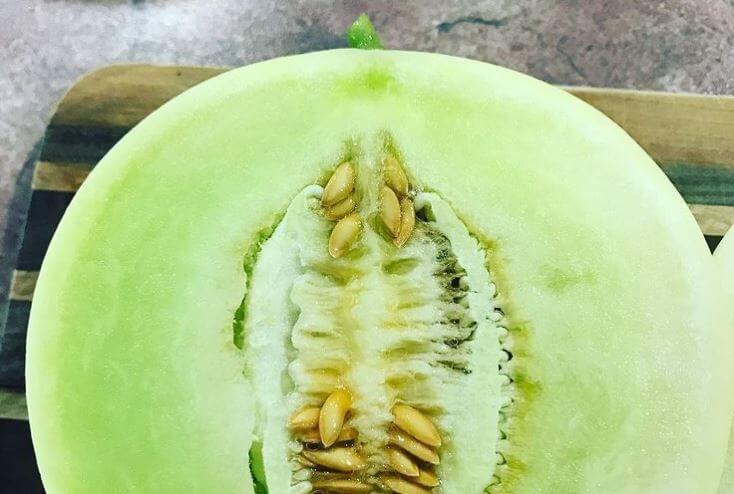
5. Phosphorous
Phosphorus in honeydew melon is higher than the calcium content.
There is a disproportionate ratio of calcium to phosphorus, so this fruit is not a good fruit for the beardie, especially for regular eating.
The reason why the calcium level in honeydew is not healthy is because of the phosphorus content.
Calcium should be higher than phosphorus.
Can Bearded Dragons Eat Honeydew Melon?
Your beardie can safely eat honeydew melon. However, only as an occasional treat instead of a part of their regular diet.
The reason is that the fruit contains high water and excessive calcium-to-phosphorus ratio (the ideal combination should be 2:1 in favor of calcium).
Foods without balanced calcium and phosphorus content will not be suitable for a beardie.
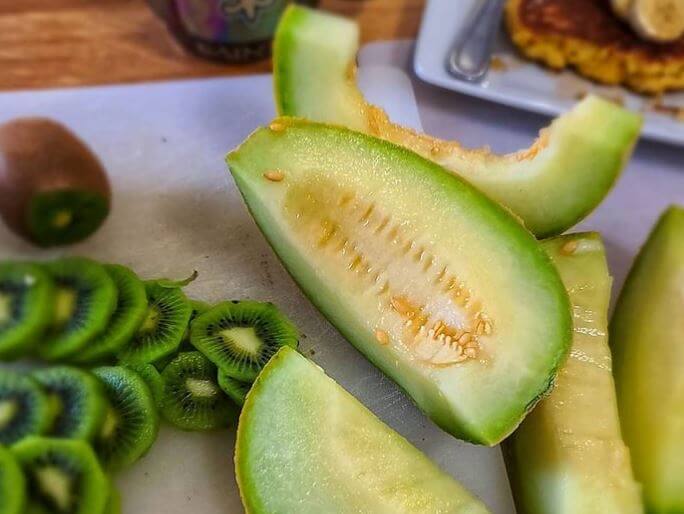
What Fruits Can Bearded Dragons Eat?
Honeydew melons should be given to bearded dragons only sparingly.
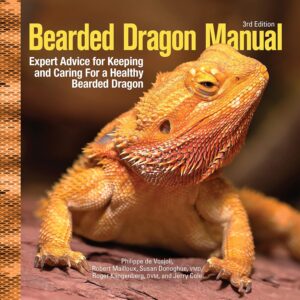 If you want to feed them fruits, here is a list of fruits that will not cause any health problems to your pet even if eaten frequently. Just make sure to remove the seeds, if any:
If you want to feed them fruits, here is a list of fruits that will not cause any health problems to your pet even if eaten frequently. Just make sure to remove the seeds, if any:
- Apples
- Melons
- Pears
- Blackberries
- Strawberries
- Watermelons
When choosing food for bearded dragons, you should avoid the watery ones because they might cause some digestive issues.
Related Posts:
- Can Beardies Eat Dill?
- Can Beardies Eat Peas?
- Do Beardies Eat Radish Greens?
- Can Beardies Eat Brussel Sprouts?
- Can Beardies Eat Peas?
- Do Beardies Eat Chard?
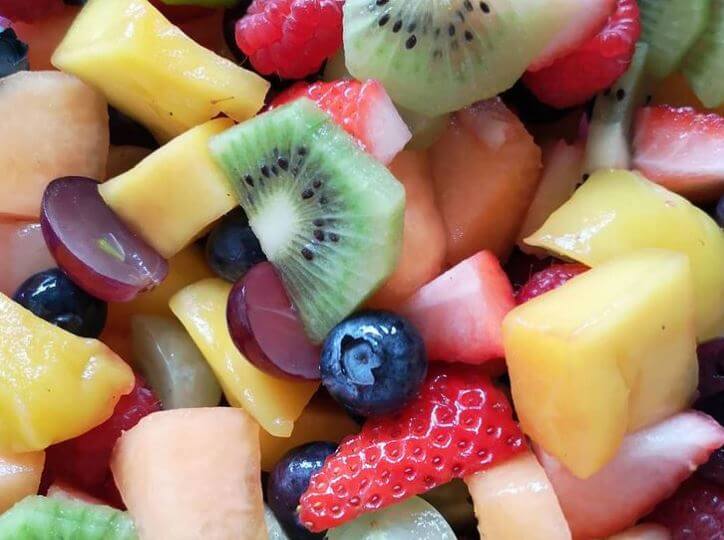
What Fruits Are Toxic to Bearded Dragons?
Citrus fruits are generally bad for bearded dragons because high levels of citric acid can cause digestive upset and lead to gastrointestinal issues.
Among the citrus fruits that must be avoided are:
- Oranges
- Lemons
- Limes
Look for fruits with lower citric acid content so they can enjoy their food and maintain their healthat the same time.
How to Prepare Fruits for Bearded Dragons?
Pets can develop health problems when they ingest pathogens, so wash the fruits thoroughly before feeding them to your pet. Make sure that the pesticides are washed out.
Next, ensure that you chop the fruits into small bite-size pieces as beardies are prone to choking if you give them large chunks of fruits.
You should consider the distance between your pet’s eyes.
Don’t feed them slices that are bigger than the space between their eyes, especially if they are still young.
To know more about what you can feed your bearded dragons, check out this video!
Frequently Asked Questions About Bearded Dragons and Melons
1. Can Bearded Dragons Eat Watermelons?
Watermelon is safe for bearded dragons, but it has almost zero nutritional value and contains water.
If you feed them too much watermelon and frequently, your pet can get overhydrated and develop health issues, especially those involving their digestive system.
It could lead to runny poo and reduced electrolyte levels because too much water flushes those out.
Read More:
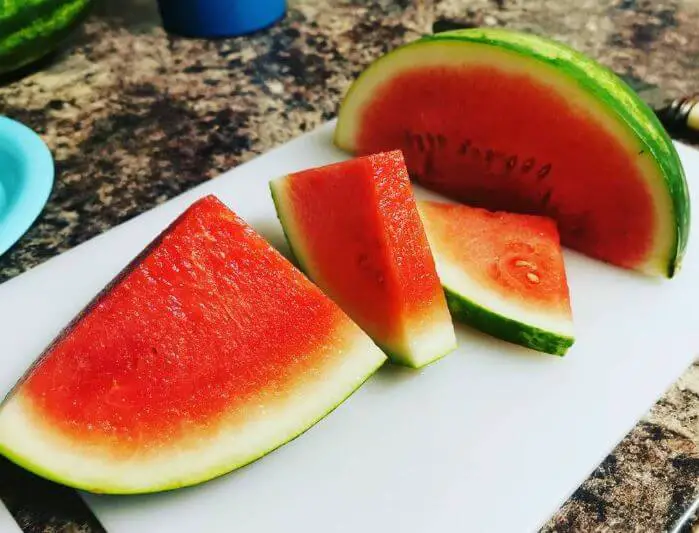
2. Can Bearded Dragons Eat Cantaloupes?
Bearded dragons can eat cantaloupe, which is one of the safest fruits for them, but only as an occasional treat.
It is a rich source of vitamins A and C as well as potassium and other nutrients. It also promotes hydration.
You need to peel off the rind or skin and chop it into small pieces before feeding your pet.
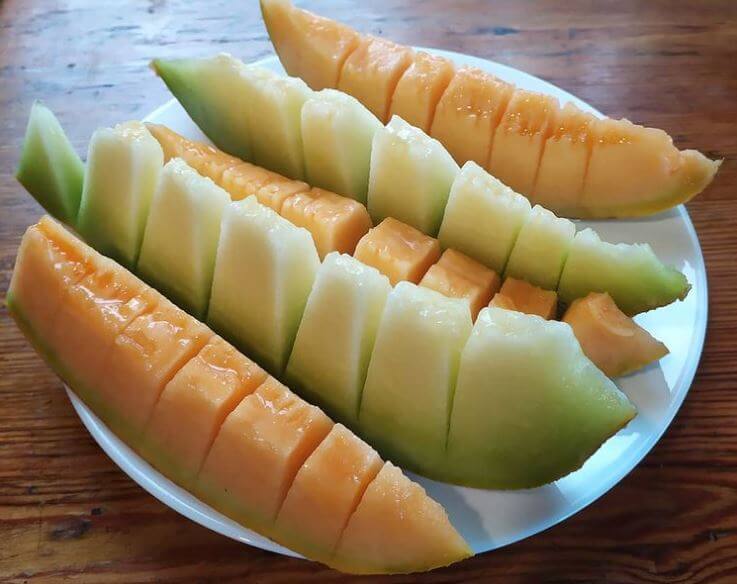
Conclusion
Can bearded dragons eat honeydew melon? Yes, but only as an occasional treat and in small amounts.
While some fruits are safe and nutritious for them, others can be toxic and harmful. Good thing, honeydew melon is safe!
Make sure to remove any seeds or rinds, as they can be harmful to your pet.
Key points on whether your bearded dragon can eat a honeydew melon or not:
Bearded dragons enjoy a varied diet that includes fruits, but not all fruits are suitable for their consumption. Here’s a concise breakdown of feeding honeydew melon to bearded dragons in a bullet point format for quick reference:
1. Fruit Consideration:
- Moderation Recommended: Honeydew melon can be offered to bearded dragons but should be given in moderation due to its high sugar content.
- Nutritional Content: It contains vitamins C and K, as well as small amounts of minerals like potassium and calcium.
2. Feeding Guidelines:
- Occasional Treat: Honeydew melon can serve as an occasional treat rather than a staple food item in a bearded dragon’s diet.
- Portion Size: Offer small, diced pieces with the rind removed to prevent choking hazards.
3. High Sugar Content:
- Sugar Concerns: While natural sugars in fruits are not inherently harmful, excessive sugar intake can lead to obesity or digestive issues in bearded dragons.
- Balance with Other Foods: Pair honeydew melon with other more nutrient-dense greens and occasional insects to maintain a balanced diet.
4. Digestive Impact:
- Fiber Content: Honeydew melon contains fiber, which can aid in digestion if fed in appropriate quantities.
- Monitor Digestive Response: Watch for any signs of digestive upset or changes in bowel movements after introducing this fruit.
5. Nutritional Diversity:
- Varied Diet: Offer a variety of fruits, greens, and insects to ensure your bearded dragon receives a wide range of nutrients.
- Nutrient-Rich Greens: Focus primarily on nutrient-rich greens and occasional fruits to meet their dietary needs.
6. Observing Behavioral Changes:
- Monitor Responses: Introduce honeydew melon slowly and observe your dragon for any adverse reactions or changes in behavior.
- Consult a Vet: If there are concerns about the dragon’s response to honeydew melon or any other food, seek advice from a reptile veterinarian.
7. Dietary Caution:
- Limit Frequency: Avoid feeding honeydew melon too frequently to prevent potential health issues associated with excessive sugar consumption.
- Diverse Options: Opt for fruits with lower sugar content, like berries or papaya, as occasional fruit alternatives.
Offering honeydew melon as an occasional treat can be acceptable for bearded dragons, provided it’s part of a balanced diet that primarily consists of nutrient-rich greens and appropriate protein sources. Maintaining moderation and observing your dragon’s response to this fruit are essential for ensuring their overall health and well-being.
Further Reading:
- Carolina Custom Cages Terrarium Review
- 8 Best Basking Rock for Beardie: What Is the Best Choice?
- 10 Best Thermometers for Beardie: How to Choose the Best One?
- 5 Best Beardie Lighting Setup for Beardie Lovers
- 9 Best Heat Lamps for Beardie: Natural Habitat Provided


